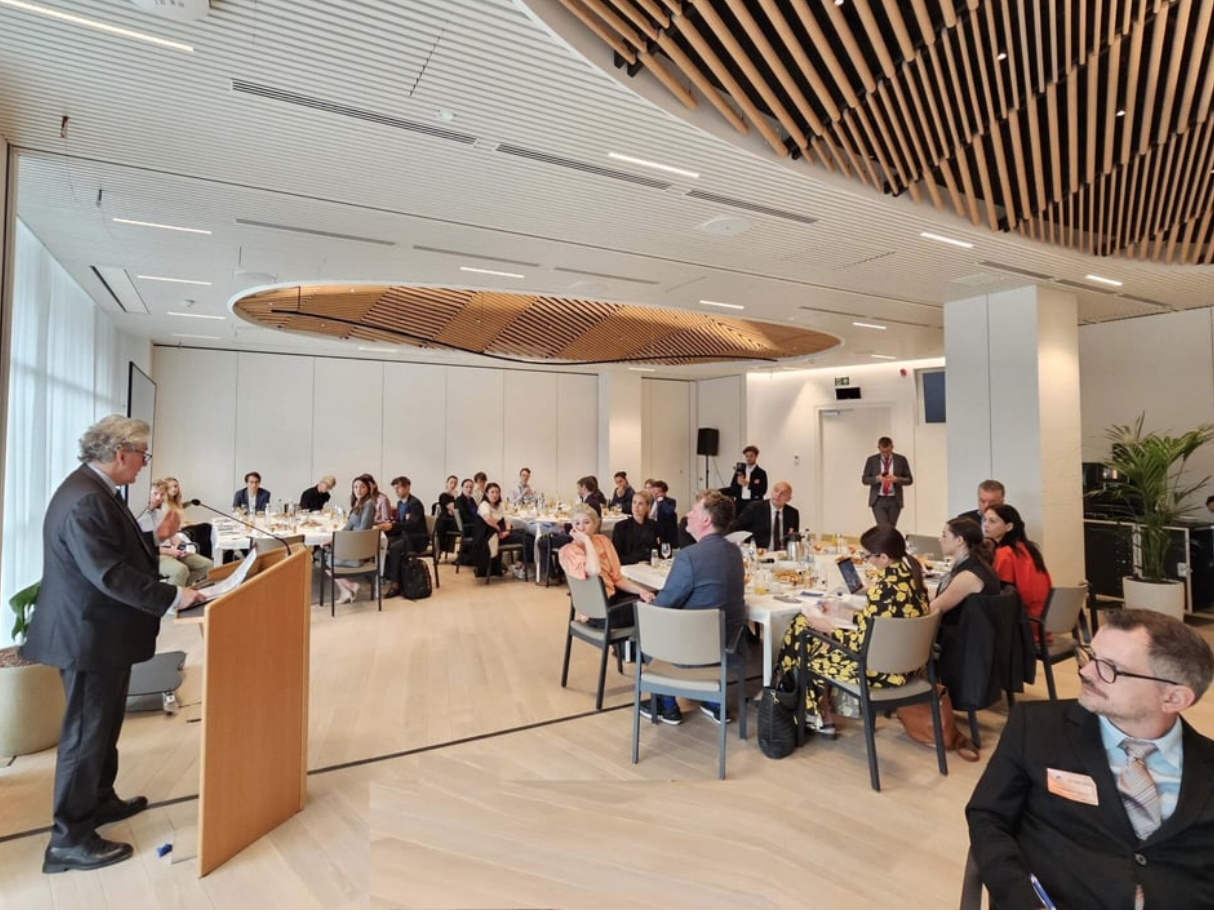
More than one participant was quick to describe the event as “historic”. “The creative fashion industry has never spoken out before. Until now, there hasn’t been an identified voice in this type of political and European debate. Faced with the numerous European regulations that are on the horizon, we intend to take part in the debate and assert our specific characteristics,” sums up Pascal Morand, Executive Chairman of the Fédération de la Haute Couture et de la Mode.
“Until now, we have taken individual initiatives to approach the European authorities, presenting ourselves in a scattered fashion. Of course, there are already players in the textile industry at European level, such as Euratex, but the entire cultural and creative dimension of the fashion sector was not represented by an official institution. With the EFA, that’s now a thing of the past,” adds Carlo Capasa, head of the Camera nazionale della moda italiana (CNMI). Founded in June 2022, the EFA has 29 members, 25 fashion federations representing 23 countries, 10,000 SMEs and 11 Fashion Weeks. No hemicycle, but a discreet meeting room over a very early breakfast, hosted the debates opened by German MEP Christian Ehler, coordinator for the Committee on Industry, Research and Energy and rapporteur on the EU strategy for sustainable and circular textiles, who underlined from the outset how Brussels has so far lacked interlocutors in this sector. “We need your expertise. It can’t work without you. The future is being decided now, in the face of the challenges of sustainable development and climate change”, he declared.
The issue is all the more urgent in that, for the first time, Europe will be earmarking €2.3 billion for a research programme in the creative industry (the creative sector in general, not just fashion), making it all the more important for the fashion industry to make its demands heard. “In practical terms, we need people to talk to and concrete projects to fund. The time to decide is now, especially as a further €1 billion is due to be allocated at the end of the year to a textile research programme”, adds Christian Ehler, who in 2014, along with Frenchwoman Pervenche Berès, set up the European Parliament’s Cultural and Creative Industries Intergroup.
The European Commissioner for the Internal Market, Thierry Breton, launched the discussion, highlighting the crucial themes of sustainability, entrepreneurship and the protection of intellectual property. “Some of our colleagues have not yet realised how important you are. We want to support you at this decisive moment of global change”, he said, addressing the EFA representatives. “Your industry is at a turning point. We are here to help you. You are leaders in this sector and we want you to continue in your pioneering role”.
The other main topic of discussion centred on the proposal adopted by the European Commission on 30 March 2022 for a new regulation on Ecodesign for Sustainable Products Relugation (ESPR), which is due to be debated in Parliament and adopted in 2024 with a potential entry into force in 2025. Among other things, this text introduces a digital passport for a wide range of products, including clothing. Above all, it stipulates a ban on destroying unsold new clothes, as well as a ban on recycling unsold items. This measure is aimed in particular at fast fashion, to encourage it to produce less.
However, as Pascal Morand points out, “for many brands, recycling is part of a circular process. There’s a risk that we’ll be taking away a whole part of the circular economy, and slowing down the motivation of designers to commit to this approach”. “With this ESPR regulation, in which we are a stakeholder, there are short-term issues at stake, in parallel with the timetable for French ecodesign legislation. It’s very important for us to take a stand”, he continues.
“Not to mention international competition. It’s clear that we have to fight at a global level to make fashion sustainable. We only have one planet! So we need to work together on ethical rules, but also on technological innovation. These are the two elements that will make up the fashion of the future”, concludes Carlo Capasa.
Read more – Fashion Network
For the first time, the European Fashion Alliance (EFA), with its twenty-five professional fashion federations, has publicly addressed the European Union. The highest authorities in the fashion industry created the EFA.
